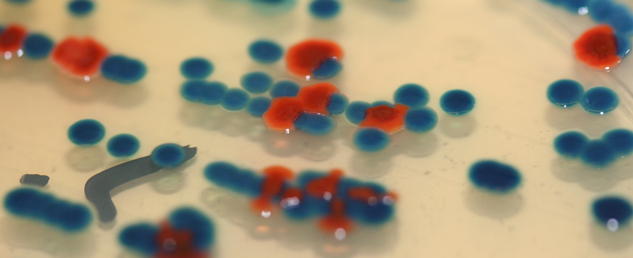Medical Microbiology & Virology
The Medical Microbiology laboratory provides an extensive clinical diagnostic and advisory service for the management of infections in patients across multiple hospital sites and provides support to infection prevention and control teams.
There is expertise available for the management of complex infection issues in a wide range of specialised fields including;
- Critically ill patients
- Immunosuppressed patients
- Oncology/haematology patients
- Recipients of solid organ transplants
- Patients with cystic fibrosis
- Bones and joint infections
- Intracardiac infections
- Neurposurgical infections
We use a comprehensive range of tests for the detection of infection causing bacteria, fungi and intestinal parasites. Sites of infection can be in any part of the body and include central nervous system (meningitis), blood (septicaemia), respiratory (including tuberculosis), gastrointestinal, genitourinary and wound or skin infections.
Once a pathogen is detected, we may perform tests to determine sensitivity to antibiotics. We also screen for antibiotic resistant organisms such as Methicillin Resistant Staphylococcus Aureus (MRSA), extended spectrum beta lacatmase producers and vancomycin resistant enterococci to reduce the possibility of cross infection in hospitals. We use the latest technologies including BD Kiestra for sample processing and Bruker Biotyper MALDI-ToF for rapid bacteria and fungi identification.
LCL hosts the national Brucella Service. The laboratory detects both total IgB, IgM and specific IgG and IgM Brucella antibodies. All sera are screened using a CE marked total Brucella antibody assay and specific IgG/IgM enzyme immunoassays. Screen positive samples undergo further testing with in-house micro-agglutination and complement fixation in-house assays.
The Virology laboratories are recognised nationally as a Specialist Virology Centre providing high quality diagnostic services for screening and monitoring of viral infections. We test for antibodies in the blood as markers of infection to a range of viruses and other pathogens. These include the blood-borne-viruses [HIV, hepatitis B (HBV), hepatitis C (HCV)] and syphilis.
To support the clinical management of pregnant women our laboratories can check the level of immune protection against vaccine-preventable virus infections including hepatitis A, HBV, measles and rubella.
The laboratory is also a testing hub for human papillomavirus (HPV) and is helping the NHS to improve the cervical cancer screening programme in England.
Using advanced molecular techniques we can detect the microbes that cause respiratory, gastrointestinal (e.g. norovirus), central nervous system and genital infections (e.g. chlamydia). These techniques can be used to determine appropriate anti-viral therapy for patients with chronic infections or to help those at higher risk of life-threatening infection such as transplant patients.
For a comprehensive list of the tests we offer, or for more information, please refer to the relevant Laboratory Handbook.

